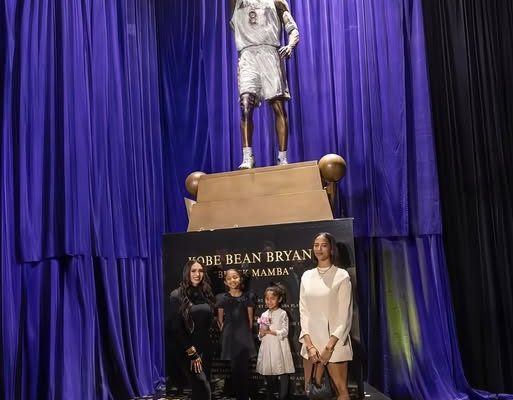**Leave the Game Better Than You Found It. And When It Comes Time for You to Leave, Leave a Legend.**
The words of Kobe Bryant resonate far beyond the basketball court. They are a philosophy, a way of life, and a challenge to anyone who aspires to greatness. “Leave the game better than you found it. And when it comes time for you to leave, leave a legend.” This statement is not just about sports; it is about legacy, impact, and the relentless pursuit of excellence in every field. Kobe’s life and career embodied this mantra, and his words continue to inspire millions to push beyond their limits, to innovate, to elevate those around them, and to ensure that their departure from any endeavor leaves an indelible mark.
To leave the game better than you found it requires more than just participation—it demands transformation. It means contributing something meaningful, whether through innovation, leadership, or sheer excellence. In basketball, Kobe didn’t just play; he redefined the game. His work ethic, known as the “Mamba Mentality,” became a blueprint for success. He studied the greats before him, absorbed their knowledge, and then pushed the boundaries further. He didn’t just follow the path; he widened it for those who came after.
This principle applies universally. In business, leaving the game better means creating systems, cultures, or products that outlast your tenure. In art, it means producing work that influences generations. In any profession, it means mentoring others, sharing knowledge, and setting a standard that elevates the entire field. The true measure of success is not just personal achievement but the lasting impact on the ecosystem you inhabit.
Kobe’s legendary status wasn’t accidental—it was the result of relentless discipline. He famously asked, “Do you want to be great or do you want to be comfortable?” Comfort is the enemy of growth. To leave the game better, one must embrace discomfort, the grind, and the unglamorous hours of work that others avoid. Kobe trained before sunrise, analyzed game footage obsessively, and refined his craft long after his peers had gone home.
This level of dedication is rare, which is why true legends are few. Most people are content with good enough, but legends demand more from themselves. They are never satisfied. They see mastery as a lifelong pursuit. Whether in sports, science, or entrepreneurship, the greatest figures in history share this trait—they never stop improving, never stop pushing the limits of what’s possible.
Leaving the game better isn’t just about personal accolades; it’s about lifting others. Kobe took pride in mentoring younger players, sharing his knowledge, and inspiring the next generation. He understood that his legacy would be measured not just by his championships but by the players he influenced. True greatness is seen in the success of those you’ve helped along the way.
In every industry, the most respected leaders are those who create opportunities for others. They don’t hoard knowledge; they disseminate it. They don’t see successors as threats; they see them as part of their legacy. The mark of a true legend is that their influence continues to grow even after they’ve stepped away, because they’ve built something—or someone—that carries their standard forward.
Knowing when to leave is as important as knowing how to dominate. Kobe’s final game was a masterpiece—60 points, a storybook ending to a storied career. But more than the points, it was the symbolism: he left on his own terms, at the peak of his powers, with the world watching in awe. Legends don’t fade away; they exit in a way that cements their place in history.
This is a lesson many struggle with. Some stay too long, diminishing their own legacy. Others leave too soon, wasting potential. The art of the exit requires self-awareness, timing, and the courage to walk away when the time is right. Steve Jobs left Apple with a product pipeline that would dominate for years. Muhammad Ali retired as “The Greatest,” his legend untarnished by prolonged decline. True legends control their narrative until the very end.
Legends never truly leave because their impact endures. Kobe’s voice still echoes in gyms, boardrooms, and creative spaces worldwide. His philosophy outlives him because it was built on timeless principles: work ethic, resilience, and an uncompromising commitment to excellence.
To leave a legend is to create something that transcends your physical presence. It’s not about fame but about influence. It’s not about being remembered but about being a reference point for greatness. Whether you’re an athlete, an artist, a teacher, or an entrepreneur, your goal should be to make your field better because you were in it—and to exit in a way that leaves no doubt about your contribution.
Kobe’s words are a call to action. They challenge us to think beyond ourselves, to strive for a standard that lifts everyone around us, and to ensure that when our time comes to step away, we do so as legends. This isn’t just about achievement; it’s about meaning. It’s about playing the long game, where success is measured not in moments but in movements.
So, whatever your “game” is—sports, business, art, or life itself—approach it with the intention of leaving it better than you found it. Work with the discipline of someone who refuses to settle. Lift others as you climb. And when it’s time to go, leave no question about your place in history. That’s how legends are made.



